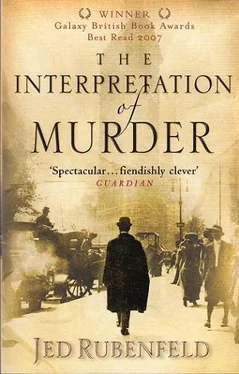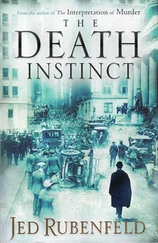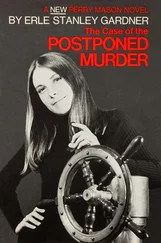Jed Rubenfeld - The Interpretation of Murder
Здесь есть возможность читать онлайн «Jed Rubenfeld - The Interpretation of Murder» весь текст электронной книги совершенно бесплатно (целиком полную версию без сокращений). В некоторых случаях можно слушать аудио, скачать через торрент в формате fb2 и присутствует краткое содержание. Жанр: Исторические приключения, на английском языке. Описание произведения, (предисловие) а так же отзывы посетителей доступны на портале библиотеки ЛибКат.
- Название:The Interpretation of Murder
- Автор:
- Жанр:
- Год:неизвестен
- ISBN:нет данных
- Рейтинг книги:5 / 5. Голосов: 1
-
Избранное:Добавить в избранное
- Отзывы:
-
Ваша оценка:
- 100
- 1
- 2
- 3
- 4
- 5
The Interpretation of Murder: краткое содержание, описание и аннотация
Предлагаем к чтению аннотацию, описание, краткое содержание или предисловие (зависит от того, что написал сам автор книги «The Interpretation of Murder»). Если вы не нашли необходимую информацию о книге — напишите в комментариях, мы постараемся отыскать её.
The Interpretation of Murder — читать онлайн бесплатно полную книгу (весь текст) целиком
Ниже представлен текст книги, разбитый по страницам. Система сохранения места последней прочитанной страницы, позволяет с удобством читать онлайн бесплатно книгу «The Interpretation of Murder», без необходимости каждый раз заново искать на чём Вы остановились. Поставьте закладку, и сможете в любой момент перейти на страницу, на которой закончили чтение.
Интервал:
Закладка:
'I am not sure, Dr Jung.'
'But you are not drawn to the idea. It is not inherently appealing to you. To them, it is.'
I had to ask him to whom he was now referring.
'All of them,' Jung answered. 'Brill, Ferenczi, Adler, Abraham, Stekel — the lot. He surrounds himself with this — this kind. They all want to tear down whatever is high, to reduce it to genitalia and excrement. The soul is not reducible to the body. Even Einstein, one of their own, does not believe that God can be eliminated.'.'Albert Einstein?'
'He is a frequent dinner guest at my house,' replied Jung. 'But he too has this same inclination to reduce. He would reduce the entire universe to mathematical laws. It is clearly a characteristic of the Jewish mind. The Jewish male, that is. The Jewish female is simply aggressive. Brill's wife is typical of the race. Intelligent, not unattractive, but so very aggressive.'
'I believe Rose is not Jewish, Dr Jung,' I said.
'Rose Brill?' Jung laughed. 'A woman with that name can be of only one religion.'
I made no reply. Jung had evidently forgotten that Rose's name had not always been Brill.
'The Aryan, 'Jung went on, 'is mythic by nature. He does not try to bring everything down to man's level. Here in
America, there is a similar tendency to reduce, but it is different. Everything here is made for children. All is made simple enough for children to understand: the signs, the advertisements, everything. Even the gait with which people walk is childlike: swinging the arms, like so. I suspect it is the result of your intermingling with the Negro. They are a good-natured race and very religious, but so very simple- minded. They exercise a tremendous influence on you; I notice your Southerners actually speak with the Negro's accent. This is also the explanation of your country's matriarchy. Woman is undoubtedly the dominant figure in America. You American men are sheep, and your women play the ravening wolves.'
I did not like the color in Jung's face. At first I had deemed it an improvement; now he seemed too flushed. The workings of his mind worried me too, for several different reasons. His conversation was disjointed, his logic faulty, his insinuations disturbing. On top of all this, I thought Jung considered himself remarkably well- informed about America for someone who had been in the country two days — particularly on the subject of American women. I changed the subject, informing him that I had just completed my first session with Miss Acton.
Jung's voice went cold. 'What?'
'She has taken rooms upstairs.'
'You are analyzing the girl — you, here, in the hotel?'
'Yes, Dr Jung.'
'I see.' He wished me luck, not very convincingly, and rose to leave. I asked him to convey my regards to Dr Onuf. For a moment, he looked as if I were speaking jibberish. Then he said he would be happy to oblige me.
Chapter Eight
On the eastern bank of the Hudson River, sixty miles north of New York City, stood a massive, sprawling, red-brick Victorian institution built in the late nineteenth century, with six wings, small windows, and a central turret. This was the Matteawan State Hospital for the Criminally Insane.
The Matteawan asylum had relatively little security. After all, the 550 inmates were not criminals. They were merely criminally insane. Many had not been charged with a crime at all, and those who were had been found not guilty.
Medical knowledge of insanity in 1909 was not a perfected science. At Matteawan, some 10 percent of the occupants were determined to have been driven insane solely as a result of masturbation. Most others were found to suffer from hereditary lunacy. For a substantial number of inmates, however, the hospital's doctors were hard-pressed to say what had made them mad or, indeed, if they were mad at all.
The violent and raving were packed into overcrowded rooms with padded walls and barred windows. The others were hardly watched. No medication was on offer, no 'talking cures.' The organizing medical idea was mental hygiene. Hence the treatment consisted of early rising, followed by mild but time-consuming labor (principally planting and tending vegetables on the thousand-acre farm surrounding the hospital), prayer service on Sundays, a punctual but vapid supper in the refectory at five, checkers or other wholesome diversions in the evening, and an early bedtime.
The patient in room 3121 passed his days in a different fashion. This patient also had rooms 3122-24. He slept not on a cot, like the other inmates, but on a double bed. And he slept late. Not a reader of books, he received by post several of the New York dailies and all the weekly magazines, which he read over poached eggs while his fellow patients were marched en masse out to the farm for their morning labor. He met with his lawyers several times a week. Best of all, a chef from Delmonico's came up by rail on Friday evenings to prepare his supper, which he took in his own dining room. His champagne and liquor, he liberally shared with the small staff of Matteawan guards, with whom he also played poker at night. When he lost at poker, he tended to break things: bottles, windows, occasionally a chair. So the guards saw to it he did not lose much: the few nickels they sacrificed at cards were more than made up for by the payments he made them to ensure his exemption from the hospital's rules. And they pocketed what was for them a small fortune when they brought in girls for his recreation.
This was not, however, so easy to do. Getting the girls in was not the problem. But the patient in 3121 had definite tastes. He liked his girls young and pretty. This requirement alone made the guards' job a hard one. Worse still, when they found a satisfactory girl, she would never last more than a couple of visits, notwithstanding the lavish remuneration. After a mere twelve months, the guards had well nigh exhausted their supply.
The two gentlemen emerging from room 3121 at one o'clock on Tuesday, the last day of August 1909, had given considerable thought to this difficulty — and had resolved it, at least to their satisfaction. They were not guards. One was a corpulent man wearing a highly self-satisfied expression under his bowler hat. The other was an elegant older gentlemen with a watch chain draped from his vest pocket, a gaunt face, and a pianist's hands.
Mayor McClellan's description of the events at the Acton residence left the coroner sputtering.
'What's the matter with you, Hugel?' asked the mayor.
'I was not informed. Why wasn't I told?'
'Because you are a coroner,' said McClellan. 'No one was killed.'
'But the crimes are virtually identical,' Hugel objected.
'I didn't know that,' said the mayor.
'If you had read my report, you would have!'
'For God's sake, calm down, Hugel.' McClellan ordered the coroner to take a seat. After the two men reviewed the crimes in more detail, Hugel declared that there could be no doubt: Elizabeth Riverford's murderer and Nora Acton's attacker had been one and the same man. 'Great God,' said the mayor quietly. 'Must I issue a warning?'
Hugel laughed dismissively. 'That a killer of society girls is haunting our streets?'
McClellan was puzzled by the coroner's tone. 'Well, yes, I suppose, or words to that effect.'
'Men do not attack young women arbitrarily,' Hugel declared. 'Crimes have motives. Scotland Yard never caught the Ripper because they never found the link between the victims. They never looked. The moment they decided they were dealing with a madman, the case was lost.'
'Great God, man, you're not suggesting the Ripper is here?'
'No, no, no,' replied the coroner, throwing up his hands in exasperation. 'I'm saying that the two attacks are not random. Something connects them. When we find the connection, we will have our man. You don't need a public warning, you need to protect that girl. He already wanted her dead, and now she is the only person who can identify him in court. Don't forget: he doesn't know she lost her memory. He will undoubtedly try to finish the job.'
Читать дальшеИнтервал:
Закладка:
Похожие книги на «The Interpretation of Murder»
Представляем Вашему вниманию похожие книги на «The Interpretation of Murder» списком для выбора. Мы отобрали схожую по названию и смыслу литературу в надежде предоставить читателям больше вариантов отыскать новые, интересные, ещё непрочитанные произведения.
Обсуждение, отзывы о книге «The Interpretation of Murder» и просто собственные мнения читателей. Оставьте ваши комментарии, напишите, что Вы думаете о произведении, его смысле или главных героях. Укажите что конкретно понравилось, а что нет, и почему Вы так считаете.












